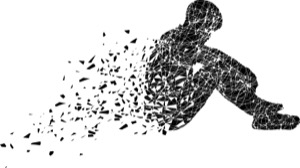
As with physical injuries, not everyone with depression qualifies for disability benefits. Yet, severe depression can significantly interfere with a person’s daily activities and ability to work. In fact, depression is among the leading causes of disability worldwide. If your claim for depression disability benefits has been denied, there is hope.
People with depression may realize they are in trouble, but many times they do not seek treatment. Without a detailed medical history of your depression, it is difficult to prove you are disabled and incapable of working. Still, the law is there to protect you if you suffer from depression. With proper action, denied disability claims for valid depressive disorders can be overturned and won for Social Security, Veterans Benefits, and long term disability (LTD) insurance claims.
We are attorney advocates for the disabled. With years of experience securing disability benefits for our clients, we offer you a free consultation with a lawyer to discuss your case.
What is Depression?
Depression has the opposite characteristics of mania. Instead of being in a euphoric mood, the person has limited activities, interests, and lowered self-esteem. A depressed person sees few possibilities for happiness. This narrowed viewpoint is associated with feelings of hopelessness and even despair. In the extreme case, even the ability to take care of personal hygiene may be impaired.
What is Bipolar Disorder?
Bipolar disorder is diagnosed when the individual’s mood fluctuates between the extremes of depression and mania. The cycling between depression and mania may be very rapid (e.g., days) or occur over long periods of time (e.g., years).
Advanced brain imaging has established that bipolar disorder is associated with brain tissue loss. Tissue loss increases with age and is also worse in proportion to the number of relapses. Changes are most prominent in areas affecting face recognition, motor coordination, and memory—the fusiform gyrus, the cerebellum, and the hippocampus, respectively. The reason for brain shrinkage is not clear. But, this is something the Social Security Administration adjudicator should keep in mind, especially if you have a long history of bipolar disorder with multiple relapses. In these instances, you may need neuropsychological testing in addition to a mental status evaluation to evaluate whether you are disabled.
Claiming Depression or BiPolar Disability on an LTD Insurance Policy
Whether you have long term disability (LTD) insurance privately or through your employer, it is the insurance carrier who will process your claim. It has become routine practice for many insurance companies to deny legitimate claims for depression or devalue the claim. If you have been unfairly denied benefits for a depression disorder, we can help you take legal action.
Insurance claims for depression disability present their own unique set of challenges. Our experience with LTD claims for depression and other mental impairments has given us a powerful arsenal for defense against the insurance companies’ frequent denial tactics.
One such argument from insurers regarding depressive disorders is that the condition is not severe enough to qualify for disability. Symptoms of depression or bipolar disorder are emotional and abstract, sometimes with highs and lows, and difficult to measure. This opens doors for the insurer to claim that you do not meet their definition of disabled.
When the insurance company uses these and other arguments to deny your claim, an experienced attorney will know how to fight the denial.
This is one reason why credibility of the claimant is very important. We are adept at establishing the credibility of our clients, with great care made to show consistency between the insured’s complaints, medical history, and the accounts of a spouse or other third party who can attest to the difficulties faced by the claimant.
You may suffer from depression while facing another serious illness or painful condition. Most insurance policies have a clause that lists mental disorders as “mental/nervous conditions” for which the benefit pay period is limited to 2 years. In their attempt to reduce the payment terms, your insurer may try to award benefits only for depression disability under the mental/nervous condition clause, with no separate recognition of the physical disability. When this is the case, we will ensure on appeal that your claim solidly demonstrates the depression is a disability separate from the physical disability.
Contact Us Today
Disability insurance attorneys at Mehr Fairbanks Trial Lawyers help depression or bipolar disability claimants across the United States get the benefits they need. Our attorneys are skilled negotiators for insurance policy settlements, and we will aggressively litigate on your behalf in state or federal court. Please give us a call toll free at 800-249-3731.
 Kentucky ERISA Disability & Life Insurance Claim Lawyers
Kentucky ERISA Disability & Life Insurance Claim Lawyers

